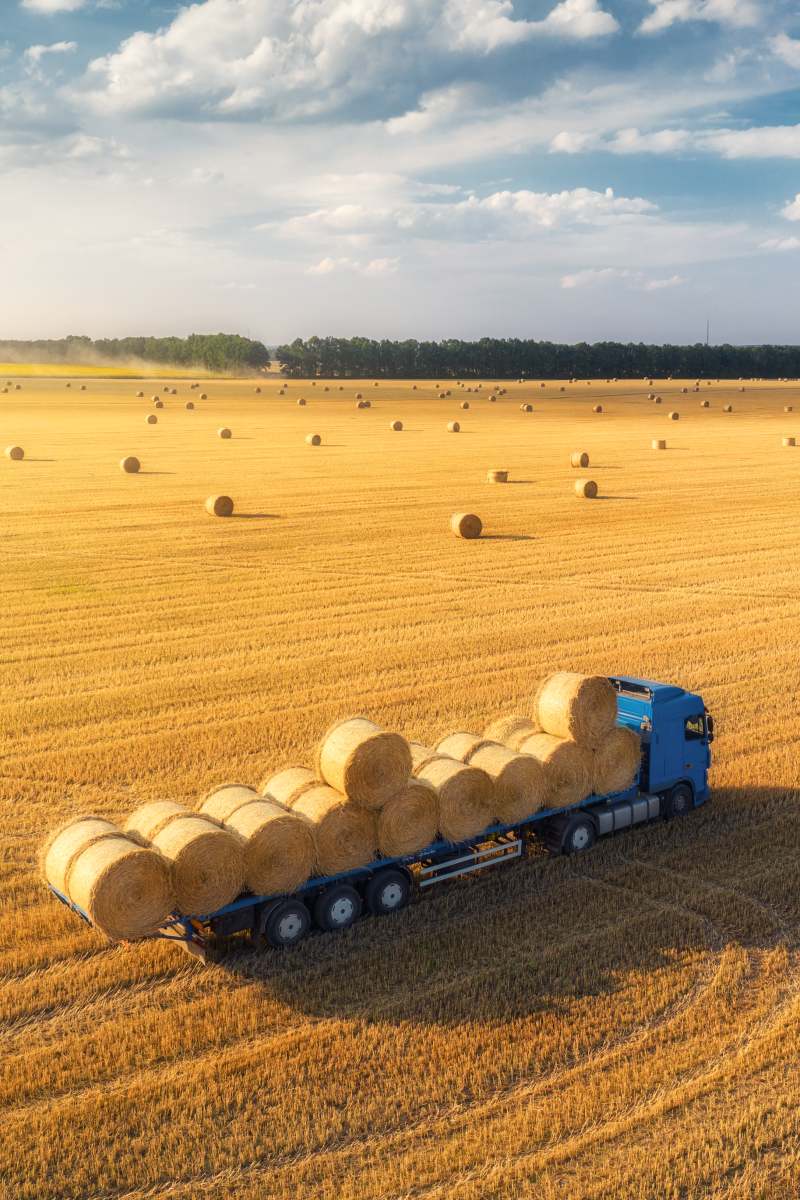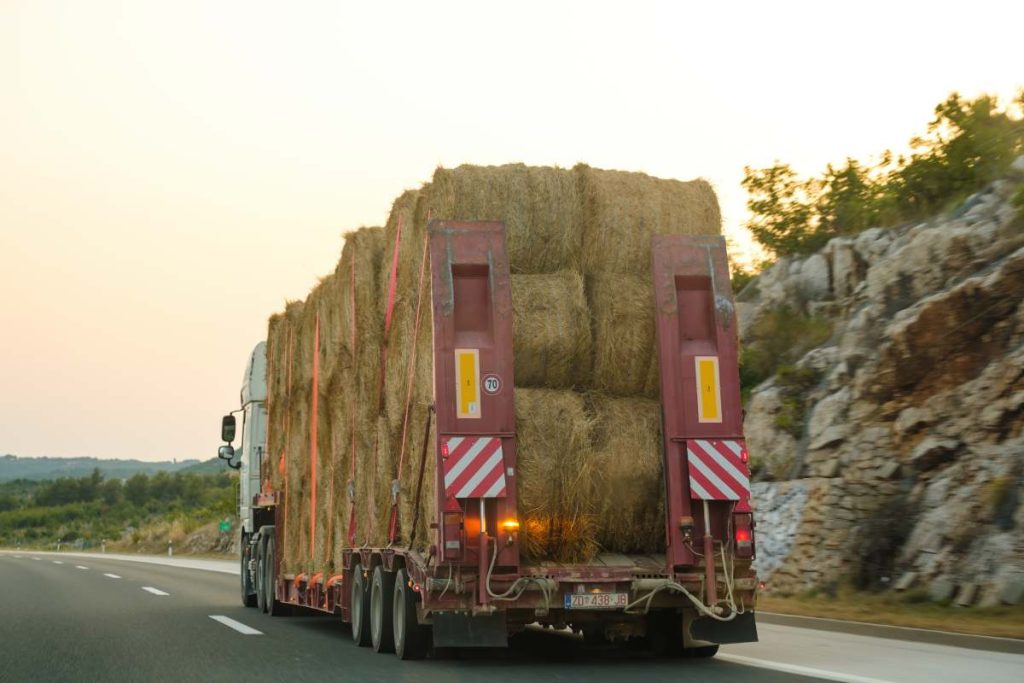in Australia
Loading


Transporting hay across Australia can be a complex task due to the country’s vast distances and varying terrains. However, finding free hay transport quotes can help make the process more manageable and cost-effective.
Hay is a vital resource for livestock, particularly in areas that experience drought or have limited pasture availability. It provides essential nutrients for animals, ensuring they stay healthy and productive. However, hay is bulky and can be difficult to transport. Whether you’re a farmer needing to stock up for the winter or supplying to other farmers, efficient and reliable transport is crucial.
Finding companies that specialize in hay transport in Australia such as Fillme. Fillme offers online platforms where you can request quotes easily. Alternatively, contacting companies directly by phone or email also works well. Look for experienced providers with a track record in transporting hay and similar cargo to yours.
Transporting hay across state lines in Australia requires specialized services due to the vast distances and various regulations. Interstate hay transporters play a crucial role in ensuring that hay reaches its destination safely and efficiently.
Finding free hay transport quotes in Australia is an excellent way to save money and ensure your hay reaches its destination safely and efficiently. Remember, the key to successful hay transport is careful planning and thorough research.
Upload Your Cargo Today and Get Free Freight Quotes

Interstate hay transporters are essential for moving hay across Australia, ensuring that livestock have access to necessary feed. By choosing a reputable transporter with the right experience and services, you can ensure that your hay is transported safely and efficiently.
Don’t forget to consider all factors, from cost to biosecurity measures, when selecting a transporter. Proper planning and careful selection of an interstate hay transporter will help you navigate the complexities of interstate logistics and ensure the timely delivery of your hay.
Remember, transparency and clarity in communication with transport providers will help you make informed decisions and ultimately get your cargo safely to its destination.
Interstate hay transporters are companies that specialize in moving hay from one state to another. They are equipped with the necessary vehicles, equipment, and expertise to handle large quantities of hay. Their role is vital in supporting the agricultural sector, especially during times of drought or when local supply is insufficient.
Specialized Vehicles: These transporters use trucks and trailers specifically designed to carry large loads of hay. These vehicles often feature flatbeds or enclosed trailers to protect the hay from the elements and ensure safe transport.
Loading and Unloading: Many interstate hay transporters offer services that include the loading and unloading of hay. They use equipment like forklifts or cranes to handle large bales, reducing the risk of damage.
Compliance with Regulations: Transporting hay across state lines involves adhering to various regulations, including biosecurity measures to prevent the spread of pests and diseases. Interstate hay transporters are knowledgeable about these regulations and ensure compliance, minimizing the risk of fines or delays.
Insurance Coverage: Reputable interstate hay transporters provide insurance coverage for the hay during transit. This coverage protects against potential losses due to accidents or unforeseen events.
Experience and Reputation: Look for transporters with a proven track record in interstate hay transport. Experienced companies are more likely to handle your hay with care and efficiency. Check online reviews and ask for recommendations from other farmers.
Service Options: Consider the range of services offered. Some transporters provide additional services such as storage, inventory management, or scheduled deliveries. Choose a company that offers the services that best meet your needs.
Cost and Quotes: Obtain quotes from multiple transporters to compare prices. Be sure to consider the overall value, including the quality of service and additional features, rather than just the lowest price.
Biosecurity Measures: Ensure the transporter follows strict biosecurity protocols to prevent the spread of pests and diseases. This is particularly important when transporting hay between regions with different biosecurity statuses.
Insurance and Liability: Verify that the transporter has adequate insurance coverage. Understand what is covered and any limitations, so you know your hay is protected during transit.
Using Fillme, a professional transport service, offers numerous benefits:

Local hay transporters play a crucial role in Australia’s agricultural sector by facilitating the movement of hay within regional and local areas. These transporters are essential for farmers, livestock owners, and other agricultural businesses that need reliable and efficient delivery of hay.
This service is crucial for maintaining the quality of the hay and ensuring it reaches its destination promptly. Here’s a closer look at the role and importance of local hay transporters in Australia.
Local hay transporters are specialized logistics providers that handle the transportation of hay over shorter distances, typically within the same state or region. They are vital for several reasons:
Reputation and Experience: Look for transporters with a strong reputation in the local community. Experience in hay transport is a key factor, as it ensures the transporter is familiar with handling and delivering hay safely.
Range of Services: Consider the range of services offered by the transporter. Do they provide the specific type of transport you need? Are they equipped to handle large or unusual loads?
Pricing and Quotes: Obtain quotes from several local transporters to compare prices. Make sure to inquire about any additional fees that may apply, such as for loading, unloading, or fuel surcharges.
Insurance and Liability: Verify that the transporter has appropriate insurance coverage to protect your hay during transit. This coverage is crucial in case of damage or loss.
Communication and Customer Service: Good communication is essential for a smooth transport process. Choose a transporter who is responsive and keeps you informed about the status of your delivery.
After comparing quotes, you’ll see Fillme is the best that meets your needs in terms of cost, service quality, and reliability. Contact us to confirm the details, clarify any questions, and schedule the transportation.
